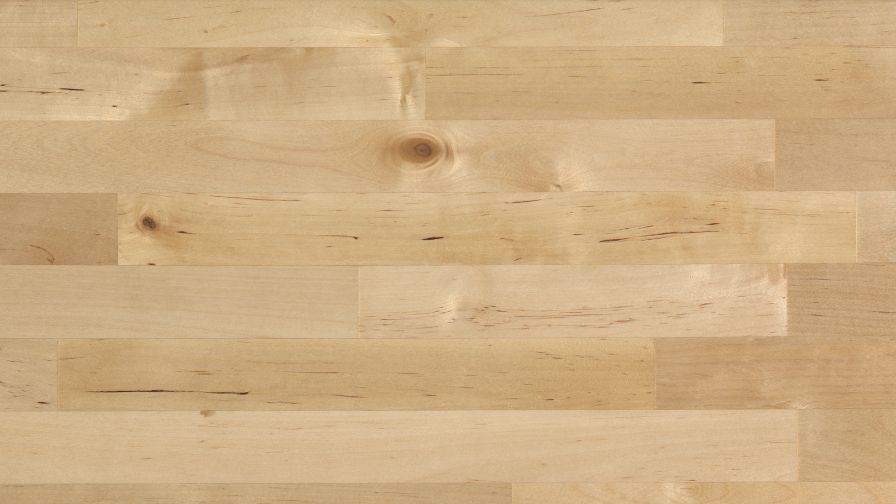
When you are in the market for a butcher block, you may wonder about poplar as a good choice.
In this blog post, we will discuss the pros and cons of poplar butcher blocks so that you can make an informed decision. Poplar is a popular choice for butcher blocks because it is strong and durable. But there are some things to consider before making a purchase.
What Is A Poplar Butcher Block?
Poplar is a type of hardwood commonly used in the manufacturing of butcher blocks. It is a very strong and durable wood, an ideal choice for use in high-traffic areas such as kitchens.
Poplar butcher blocks are made from planks of wood that have been glued together to form a solid block. The butcher block can then serve as a cutting surface for meats and vegetables. It can act as a serving tray or platter.
Poplar butcher blocks are available in a variety of sizes and styles to suit any need. They can appear in home improvement stores, online retailers, and even some department stores. Prices will vary depending on the size and style of the butcher block.
When shopping for a poplar butcher block, consider its intended use. With frequent use, choose a thicker block that can withstand heavy chopping. Since it is for serving, a thinner block may suffice.
It is also important to take into account the size of the kitchen and the amount of counter space available. A large butcher block is too cumbersome for a small kitchen. Conversely, a small butcher block may get lost on a large kitchen counter.
Once you consider all these factors, you can begin shopping for the perfect poplar butcher block for your home.
Why Do You Want A Poplar Butcher Block?
Poplar is a beautiful hardwood that’s perfect for butcher blocks. It has a light color with dark streaks running through it, which makes for a stunning contrast when used in the kitchen.
Poplar is also a very hard and durable wood. So it will withstand years of use without showing any wear.
Butcher blocks made from poplar are also affordable. That’s because poplar is a common wood that’s easy to find and harvest. So you won’t have to spend a lot of money to get your hands on one.
When you’re looking for a beautiful, durable, and affordable butcher block, poplar is the way to go. It’s the perfect choice for anyone who wants the best of all worlds.
Is Poplar Good For Butcher Blocks?
Subscribe to Baird Brothers Fine Hardwoods
Poplar is a good wood for butcher blocks because it is hard and durable. It is also easy to clean and maintain.
Poplar is available in different grades, so you can choose the one that best suits your needs. When you are looking for a durable and easy-to-maintain butcher block, poplar is a good option.
Does Poplar Wood Break Easily?
Poplar wood is a type of hardwood known for being lightweight and easy to work with. However, it is not as strong as some other types of hardwoods. So it may break more easily when it is not used properly. For example, as you try to nail or screw into poplar wood without first drilling a pilot hole, you will cause the wood to crack.
When working with poplar wood, take care not to put too much stress on it. Otherwise, you may find that it breaks more easily than you had anticipated.
Is Poplar High-Quality Wood?
Poplar wood is considered a high-quality wood because of its strength and durability. It is also a good choice for many projects because it is easy to work with. When you are looking for high-quality wood for your next project, consider poplar.
It is commonly used in the manufacture of furniture, cabinets, and other wood products. It is also used for construction purposes, such as in homes and other buildings.
There are plenty of types of wood, and each has its unique characteristics. Poplar is no different. This hardwood is known for being very strong and durable. It is also lightweight. Poplar has a straight grain and a smooth texture, ideal for painting and staining.
The Benefits Of Poplar Butcher Blocks
Subscribe to Mean’s Woodshop
Poplar butcher blocks offer many benefits for the home cook:
-An inexpensive hardwood, so it’s a great option for those on a budget.
-Light in color, so it won’t show knife marks as much as darker woods.
-A closed grain, meaning it won’t absorb liquids and stains as easily as an open grain wood like beech or maple.
-Less likely to harbor bacteria than other types of butcher blocks.
The Drawbacks Of Poplar Butcher Blocks
Poplar is a very popular hardwood for making butcher blocks. But it does have some drawbacks:
-One is that it is not as strong as some other woods. So it can dent and scratch more easily.
-It is also a softer wood, so it may not hold up as well to heavy use over time.
-Finally, poplar is not as water resistant as some other woods. So seal it well to prevent warping and damage.
How To Care For Your Poplar Butcher Block
Poplar is a beautiful hardwood that makes a stunning butcher block countertop. But like any natural material, it requires some special care to keep it looking its best.
Here are tips on how to care for your poplar butcher block:
1. Wipe up spills immediately – Poplar is a porous wood, so it can absorb spills when they’re not wiped up right away. Use a clean and dry cloth to wipe up any liquid spills.
2. Avoid putting hot pots and pans directly on the surface – Poplar is a soft wood, so it can have damage from heat. Put trivets or cutting boards down first, and then place your hot pots and pans on top.
3. Don’t let knives sit in the wood – When you’re chopping vegetables or meat on your butcher block, clean up any knife marks afterward. Letting knives sit in the wood can cause damage over time.
4. Use a cutting board when possible – Since you’re going to do a lot of chopping, it’s best to use a cutting board instead of directly on the butcher block. This will keep your knives sharp and prevent damage to the wood.
5. Oil the butcher block regularly – Once a week, or as needed, oil the butcher block with a food-safe mineral oil. This will keep the wood from drying out and prevent cracking.
With proper care, your poplar butcher block will last for many years to come. Enjoy your beautiful new countertop!
Where To Buy A Poplar Butcher Block
Subscribe to The GRIT and Polish
Poplar is an inexpensive hardwood that’s often used for butcher block countertops. It’s a popular choice because it’s durable and easy to find. You can buy poplar countertops at most home improvement stores, or you can order them online.
Here are things to keep in mind when you’re shopping for a poplar butcher block:
-Size: Poplar countertops come in a variety of sizes. So measure your space before you shop. Butcher blocks are 1.5 to 2 inches thick. You have enough space for the thickness you want.
-Type of finish: Most poplar butcher blocks come unfinished. That way, you can choose the type of finish you want. You can also buy pre-finished butcher blocks, but they’re more expensive.
-Edge profile: Butcher blocks have a square or rectangular shape. But you can also find rounded edges and other profiles. Choose the edge profile that fits your style.
-Installation: Butcher blocks are easy to install yourself. But when you’re not comfortable doing it, you can hire a professional.
-Price: Poplar butcher blocks are very affordable. They start at around $100 for a small countertop. Larger countertops can cost up to $500.
When you’re browsing for a poplar butcher block, keep these things in mind. That way, you’ll find the perfect one for your kitchen.
Tips For Choosing The Right Poplar Butcher Block For Your Needs
Poplar is one of the most popular woods for butcher blocks, and for good reason. It’s durable, easy to clean, and has a beautiful grain that adds character to any kitchen.
When choosing a poplar butcher block, there are a few things to keep in mind:
-Choose a piece that is at least 1 to 1/2″ thick. This will ensure that your block is durable and will last for years.
-Avoid boards with knots or other blemishes, as these can get difficult to clean and may harbor bacteria.
-Look for a board with a tight grain pattern. This will make it easier to keep your block clean and bacteria-free.
Once you find the perfect poplar butcher block, take care of it properly. Here are tips:
-Never cut directly on the butcher block itself. Always use a cutting board or mat to protect the surface.
-Wipe up spills immediately, and clean the block regularly with a mild soap and water solution.
-Oil the block periodically to keep it from drying out and cracking. Mineral oil is a good option and can find at most hardware stores.
With proper care, your poplar butcher block will last for many years. Enjoy your new kitchen addition!



